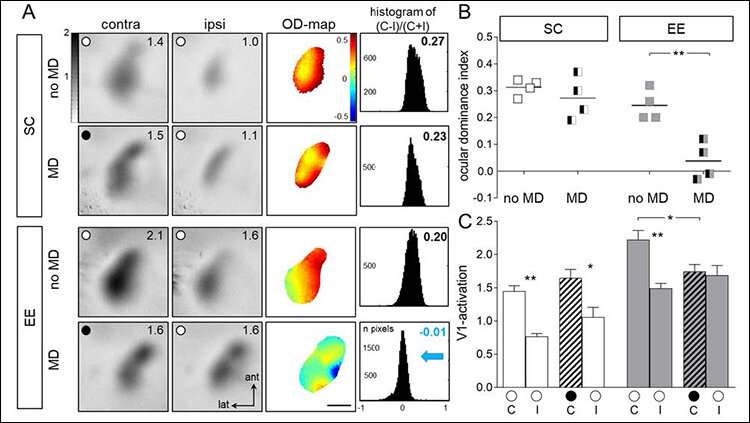Mice pass on brain benefits of enriched upbringing to offspring

Mice growing up in a basic cage maintain lifelong visual cortex plasticity if their parents were raised in an environment that promoted social interaction and physical and mental stimulation, according to a multigenerational study published in eNeuro. The research suggests life experience may be transmitted from one generation to the next through a combination of changes in gene expression and parental caretaking behavior.
Blocking visual input to one eye of adult mice leads to a rewiring of the visual cortex to prioritize input from the open eye. Siegrid Löwel and colleagues first confirmed that this plasticity declines over time in mice housed in standard cages while it is preserved throughout life in mice raised in an enriched environment—in this case a large, two-story cage with separate living and eating areas connected by a ladder, regularly changed mazes, and a slide.
The researchers then bred the mice to create three experimental groups of offspring, all of which were raised in standard cages. Despite being raised in the same impoverished environment, mice whose parents—particularly mothers—were raised in the enriched environment maintained lifelong plasticity in the visual cortex. These findings emphasize the importance of documenting rearing conditions of experimental animals across generations.
More information: Transgenerational transmission of enhanced ocular dominance plasticity from enriched mice to their non-enriched offspring, eNeuro, DOI: 10.1523/ENEURO.0252-18.2018


















